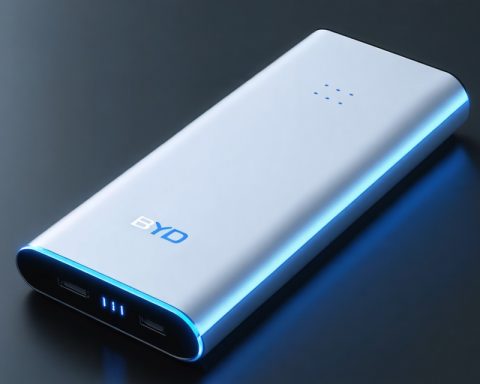- Florida witnesses a surge in electric vehicle (EV) adoption, challenging traditional transportation funding.
- Senator Nick DiCeglie proposes SB 462 to tax public electric charging stations, charging six cents per kilowatt-hour by 2025.
- Revenue from SB 462 aims to support the State Transportation Trust Fund as fuel tax revenues decline.
- Floridian infrastructure funding currently relies heavily on gas taxes, but this source is diminishing with the rise of EVs.
- The bill highlights a proactive approach to funding infrastructure, potentially serving as a model for the future.
- The legislation reflects a strategic shift toward sustainable revenue models to accommodate growing EV numbers.
Amidst the vibrant Florida landscape, a silent revolution revs its electric engines. A growing fleet of electric vehicles (EVs) zips across highways, silently drafting a new chapter in transportation. Yet, as these whispering wonders cut through the morning commute and hum past orange groves, they pose a contemporary conundrum for the state’s traditional funding mechanisms.
Republican Senator Nick DiCeglie has introduced a forward-thinking proposal: SB 462, an ambitious bid to tap into the burgeoning network of public electric charging stations. By 2025, the plan envisions siphoning six cents for every kilowatt-hour spent at these charge points, steering funds into the State Transportation Trust Fund. It’s a pivot that seeks to electrify the flow of infrastructure dollars as fuel tax revenues dwindle in comparison to the relentless march of clean energy.
Imagine a typical roadside charging stop: a driver connects their vehicle, eyes on the dim glow of a charging interface. For every kilowatt-hour that pulses into the battery, nearly two dollars could feather the state’s infrastructure nest egg—a small but potent spark in the grand scheme.
Currently, Florida’s infrastructure piggy bank mostly overflows via gas taxes, a source seemingly omnipresent yet slowly eroding. In stark numbers, Florida’s 24 million registered vehicles include a mere 346,038 electric outliers, forecasted to transition from rarity to norm.
This legislative initiative casts a long shadow of anticipation. As fuel taxes face an increasingly uncertain future, Florida’s proposed measure could illustrate a vibrant path forward, ensuring that as wheels turn, so too does the pulse of progress. By evolving its revenue tactics with such innovative foresight, Florida could well lead the charge in adapting to an electrifying future.
The Future of Electric Vehicle Charging in Florida: Will New Legislation Spark a Revolution?
How-To Steps & Life Hacks: Navigating Electric Vehicle Charging in Florida
1. Finding Charging Stations: Utilize apps like PlugShare or ChargePoint to locate nearby charging stations in Florida. These platforms offer real-time data on availability and pricing.
2. Maximizing Charge Efficiency: Charge your EV during off-peak hours if possible, to save on costs and reduce grid strain.
3. Understanding SB 462: Learn about SB 462 and its impact on your charging costs. Essentially, prepare for a 6-cent per kilowatt-hour fee that contributes to state infrastructure.
Real-World Use Cases and Applications
Electric vehicles are helping businesses and individuals save money while reducing their carbon footprint. For instance, companies with delivery services are integrating EVs to cut fuel costs and leverage government incentives. This shift contributes to their corporate sustainability goals.
Market Forecasts & Industry Trends
According to a 2022 report by BloombergNEF, the global electric vehicle market is expected to grow significantly, with EVs accounting for 58% of new car sales by 2040. Florida is a prime candidate for massive EV adoption due to its growing infrastructure and favorable legislation.
Reviews & Comparisons
– Tesla Model 3: Known for its performance and range, it has been a top choice in Florida.
– Chevrolet Bolt EV: Offers a budget-friendly alternative with notable range and features, attracting a different segment of consumers.
Controversies & Limitations
One major concern is the environmental impact of increased electricity demand on Florida’s grid, especially if relying on non-renewable sources. Additionally, there’s ongoing debate about equitable access to charging stations in rural areas.
Features, Specs & Pricing: What to Expect
Charging stations under SB 462 will include contemporary features like major credit card support, app integration, and potentially dynamic pricing based on peak times. Pricing details will vary by location.
Security & Sustainability Insights
As charging infrastructure expands, security protocols are paramount to protect user data and prevent potential cyberattacks. Florida is also focusing on sustainable energy sources, aiming to integrate solar power with charging stations.
Pros & Cons Overview
Pros:
– Increased state infrastructure funding.
– Encouragement of EV adoption through visible infrastructure investment.
Cons:
– The additional fee may deter some from switching to electric.
– Possible disparity in resource allocation between urban and rural areas.
Quick Tips and Actionable Recommendations
– Stay Informed: Regularly check updates on SB 462 to understand its evolving implications.
– Explore Incentives: Look for available federal and state tax credits for purchasing an EV.
– Plan Your Routes: Use technology to efficiently plan charging stops during long trips.
In conclusion, Florida’s forward-thinking legislation, SB 462, positions the state as a leader in modern transportation infrastructure while addressing the dwindling fuel tax revenue. By adapting to new challenges through strategic innovation, Florida is set to electrify its roads while tapping into the potential of clean energy.
For more insights on electric vehicles and innovative technologies, visit Department of Energy or ACEEE.















